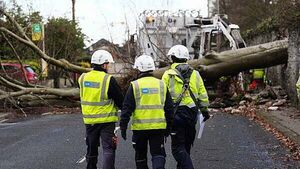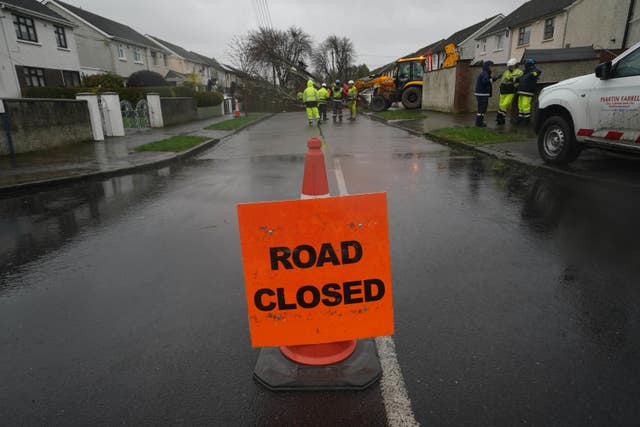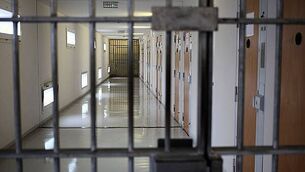Storm Éowyn report recommends cancelling events under orange wind warnings

By Cillian Sherlock, PA
Public events should be cancelled in areas under orange wind warnings, according to a review published after Storm Éowyn.
Storm Éowyn in January is recognised as one of the most dangerous and destructive storms in living memory in Ireland.
It brought gale-force/storm force winds, including severely damaging and destructive gusts of over 184 km/h, a record for Ireland.
The impacts of Storm Éowyn were particularly severe and prolonged in remote and rural communities across the western seaboard, the northwest and midlands of the country.
On Wednesday, the National Directorate of Fire and Emergency Management published a series of recommendations in its review of the storm.
It states: “It is recommend that event organisers should cancel events in areas where an Orange Wind Warning threshold is forecast.”
“Event sites and funfairs with temporary structures of all kinds may need to be considered for closure at a lower threshold, which should be set by the event organiser at the event planning stage.
“All event organisers should have arrangements in place to monitor winds speeds at the site of an outdoor event.”

It said storms coinciding with large crowd events such as weekend music festivals or large sporting events poses significant risk to attendees.
The NDFEM said public authorities should include a condition to planning for weather impact including full closure and appropriate notification.
It said under the current model, public authorities may be advising against an event but the decision to proceed or cancel rests with the event organiser.
The NDFEM said it is recommended that, where not already the case, the responsibilities of the event organiser to consider weather impacts is included in risk assessments.
“While it is clear that event organisers are responsible for persons attending an event, the responsibility for travelling to attend an event falls to an individual or to the transport operator.
“The timing of an advanced warning plays a key role in determining the protective actions event organisers and individuals can take.
“It is normally possible to cancel sporting and other large crowd events in advance of a forecasted storm or an adverse weather event.
“Sporting and event organisers would generally be expected to take a responsible and common sense approach in the run up to a forecasted storm.
“For licensed events, public authorities should include a condition to planning for weather impact including full closure and appropriate notification.
“However, the great bulk of public events are not licensed and there is no obvious mechanism, other than workplace health and safety legislation, that could be used to require an event organiser to cancel an event due to the anticipated severe weather conditions.”
In addition, the peak of 768,000 customers without electricity supply, with week’s long interruption to power and water supplies, necessitated a humanitarian response “at a scale well beyond any previous severe weather event”.
This also had other cascading effects on essential services and infrastructure.
The activation of “emergency hubs” during the storm enabled “some basic humanitarian assistance to be provided”, the NDFEM said.
Its report recommends that the concept of emergency hubs needs to be further developed and reinforced so that they can be activated at short notice, providing a predefined level of support.
“Local authorities proved to be best placed to coordinate and where necessary directly provide such Hubs.
“It is clear that local authorities cannot provide hubs in every community, there are a range of community organisations that can be supported to provide hubs where necessary.”





